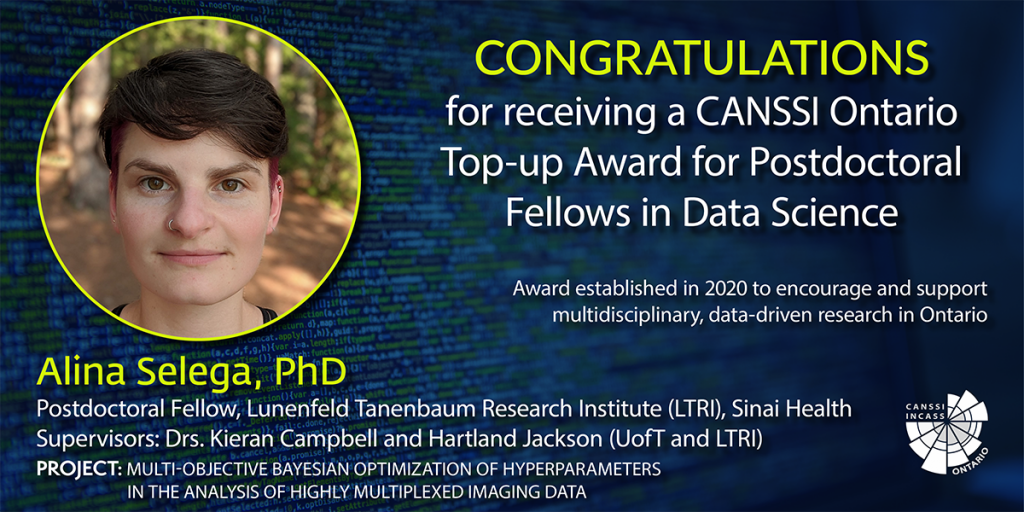Dr. Alina Selega, a postdoctoral fellow at the Lunenfeld-Tanenbaum Research Institute in Toronto, working under the supervision of Drs. Kieran Campbell and Hartland Jackson, received this top-up award for project “Multi-objective Bayesian optimization of hyperparameters in the analysis of highly multiplexed imaging data.”
Dr. Selega is a machine learning and genomics expert in a group working at the intersection of machine learning, statistics, and translational biomedicine. She is also a postgraduate affiliate at the Vector Institute in Toronto.
Prior to that, Dr. Selega was a postdoctoral fellow in a group led by Dr. Quaid Morris at the University of Toronto and Vector Institute, where she worked on machine learning methods for cancer genomics. Dr. Selega earned her Ph.D. in 2018 at the University of Edinburgh, where she developed robust computational methods for studying RNA biology. She holds a Master’s degree in computational neuroscience from the University of Edinburgh and a Bachelor’s degree in computer science and mathematics from the University of York (UK).
Dr. Selega’s research work focuses on novel computational methods based on probabilistic models to analyze complex genomic data in order to answer important biomedical questions. Dr. Selega is especially interested in developing robust and principled methods that aim to replace subjective and often arbitrary heuristic steps in computational analyses that may not generalize across different datasets yet can significantly affect the results. Her current project aims to build on and extend Bayesian optimization methods to automatically select optimal parameters and entire analysis workflows for highly-multiplexed imaging and single-cell genomics datasets. This work is expected to make a significant impact in the field by facilitating faster, more robust future research.
CANSSI Ontario offers top-up opportunities for postdoctoral fellows interested in pursuing multidisciplinary, data-driven research. Learn more.

